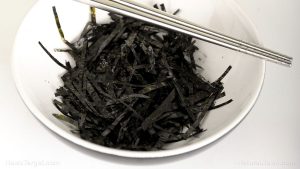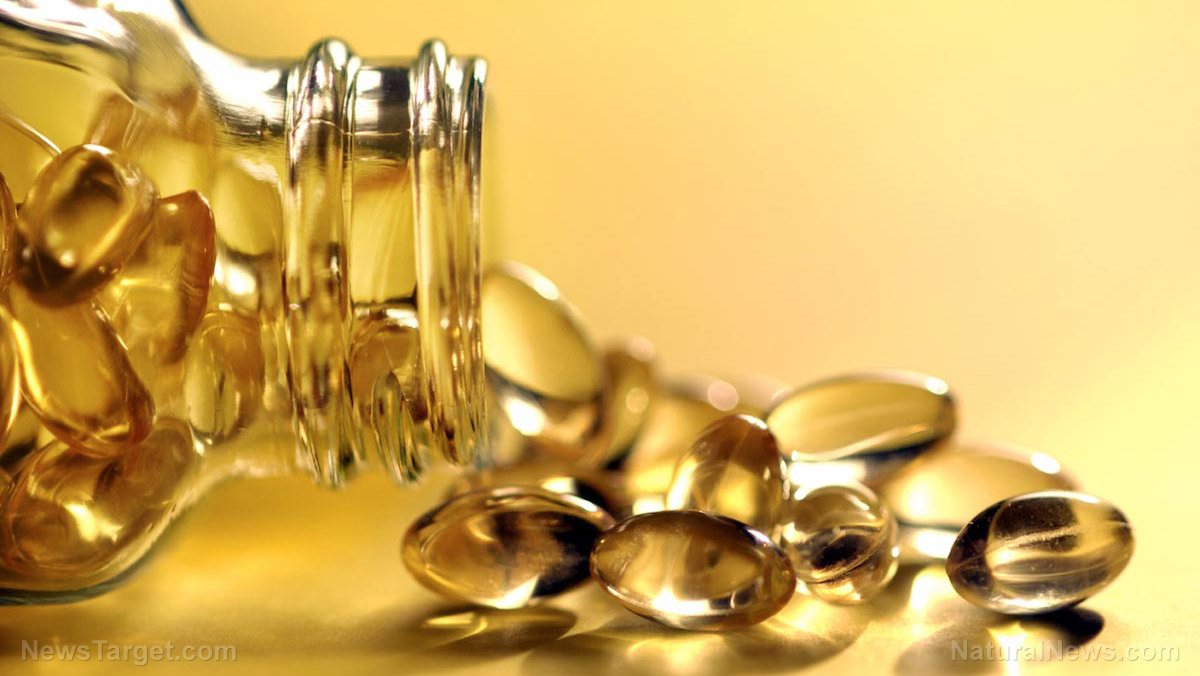Why taurine is much more than an athletic performance supplement
09/27/2018 / By Zoey Sky

Aside from boosting athletic performance, taurine offers many benefits for your physical and mental health. It is even used to ease conditions like anxiety, depression, diabetes, and insomnia.
What is taurine and why is it good for you?
Athletes and bodybuilders often use taurine as a supplement to enhance their physical performance. However, taurine is more than an athletic performance booster. It is a crucial nutrient for overall mental and physical health.
Taurine is a sulfur amino acid and it’s one of the most abundant compounds in your brain, retina, heart, and muscles. Taurine in the brain is necessary for the movement of calcium, magnesium, potassium, and sodium in and out of brain cells.
Taurine is a non-essential or conditional amino acid. This means that the brain and liver can synthesize some taurine, but it’s not enough to meet all your needs. To boost your taurine intake, your diet must include meat and seafood.
Taurine was first discovered in the bile of bulls, hence the name “taurine,” which comes from “taurus,” the Latin word for bull/ox.
Good sources of taurine include:
- Dairy
- Meat
- Nori – Nori, a type of seaweed used to roll sushi, is the only known vegetable that has taurine. It also contains nutrients like calcium, iodine, iron, magnesium, phosphorus, sodium, thiamine, and vitamins A, C, and E.
- Poultry (especially dark meat)
- Seafood (especially shellfish)
Human breast milk also contains taurine, which is needed for the brain and eye development of infants. Aside from consuming taurine-rich foods, the body can synthesize it if the right building blocks are present: amino acids cysteine and methionine, as well as vitamin A, vitamin B6, and zinc.

What causes taurine deficiency?
The common symptoms of taurine deficiency include anxiety, depression, high blood pressure, impaired vision, kidney problems, and trouble recovering from exercise. Below are the causes of taurine deficiency:
- Aging – Taurine levels drop with age.
- Being vegetarian – Taurine comes almost exclusively from animal products, and this means vegetarians have a high chance of developing a taurine deficiency.
- Deficiencies in the raw materials needed to synthesize taurine can make your levels too low.
- Having certain health conditions depletes taurine (e.g., anxiety, autism, candida, depression, hypertension, hypothyroidism, gout, infertility, kidney failure, and obesity).
- Having Parkinson’s disease uses up your taurine.
- Having type 1 or type 2 diabetes makes you deficient in taurine.
- Using chemotherapy drugs depletes taurine.
The benefits of taurine
Taurine helps boost physical stamina and improve athletic performance. It is also needed for mental health and well-being.
Studies show that a diet high in taurine, mostly from seafood, is one of the reasons for the extreme longevity of some Japanese individuals. (Related: Early stages of schizophrenia can be treated with nutrients found in Brussels sprouts, shellfish, and oranges.)
Taurine as a performance booster
Both bodybuilders and endurance athletes use taurine supplements to ease cramps, fatigue, and muscle soreness. Pairing taurine with branched chain amino acids (BCAAs) can help minimize post-exercise muscle soreness.
Taurine and anxiety
Gamma-aminobutyric acid (GABA), the brain’s main calming neurotransmitter, helps you feel happy and relaxed. If you have low GABA levels, you may feel anxious, consumed with dread, overwhelmed, or stressed out. You may also become disorganized, easily distracted, or easily overstimulated.
Low GABA levels can be caused by blood sugar imbalance, gluten intolerance, illness, injury, physical exertion, or stress. Individuals low in GABA may self-medicate with alcohol, food, or tranquilizing drugs to relax. However, a healthier way to boost GABA levels is via taurine supplementation.
Taurine functions similarly to GABA in the brain. It even has a similar structure to the latter and it can bind to GABA receptors.
Other benefits of taurine
Taurine has potent neuroprotective capabilities. It can help prevent age-related mental decline by boosting the level of brain-derived neurotrophic factor (BDNF). BDNF is a protein that acts like fertilizer in the brain and it stimulates the growth of new brain cells.
Taurine helps promote the formation of new brain cells in the hippocampus, the brain’s “memory center.” It also has antioxidant, anti-inflammatory, and antidepressant properties.
Diabetes
People with diabetes have lower levels of taurine compared to individuals with normal blood sugar levels. Taurine can help decrease insulin resistance and offset some of the side effects of diabetes like kidney damage, neuropathy, and retinopathy.
Eyes and ears
Taurine helps promote eye health since the retina has a higher concentration of taurine than any other body part. Taurine is also important for your hearing. In some cases, taurine supplementation can help reverse hearing loss.

Heart health
Taurine is the most abundant and crucial amino acid in the heart. It can improve blood flow and oxygen supply to heart cells. Taurine also boosts the effectiveness of heart muscle contractions and normalizes rhythm irregularities.
MSG reactions
Taurine supplements are often used to neutralize monosodium glutamate (MSG) reactions. MSG is a food additive that is often found in processed foods such as canned soups, noodles, and salty snacks.
MSG reactions may include:
- Abdominal pain
- Fatigue
- Flushing
- Headaches
- Hives
- Nausea
- Numbness or burning in the mouth or throat
- Sweating
- Diarrhea
There’s no Recommended Daily Allowance (RDA) for taurine, but a normal, healthy dose is between 500 to 2,000 milligrams (mg) per day. The kidneys can excrete any excess taurine from the body. Some healthcare professionals may recommend about six grams (g) per day for health conditions like diabetes and hypertension.
Taurine supplements are considered very safe, but they’re not recommended for pregnant or breastfeeding women. If you have bipolar disorder, consult a medical professional before taking taurine supplements because it may worsen manic symptoms. Taurine doesn’t mix well with lithium, a common bipolar medication.
Taurine is an amino acid that’s commonly used as a physical performance booster, but it also offers various physical and mental health benefits, making it very beneficial to your overall health.
Read more articles about the various health benefits of taurine at Healing.news.
Sources include:
Tagged Under: Amino Acids, athletic performance, food science, ingredients, mind body science, natural cures, natural healing, natural medicine, natural remedies, performance boosters, prevention, proper diet, proper nutrition, remedies, research, sulfur amino acid, sulfur amino acids, taurine



















